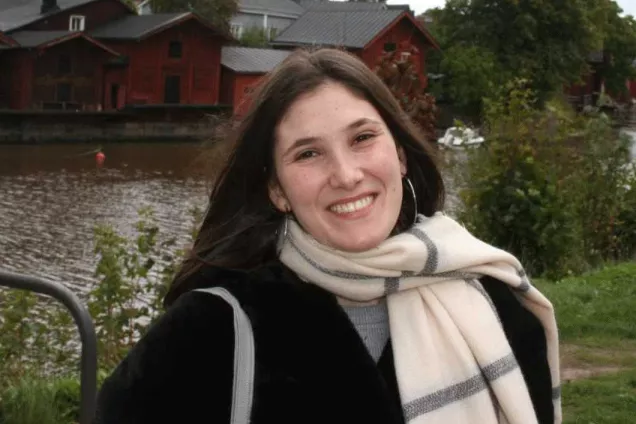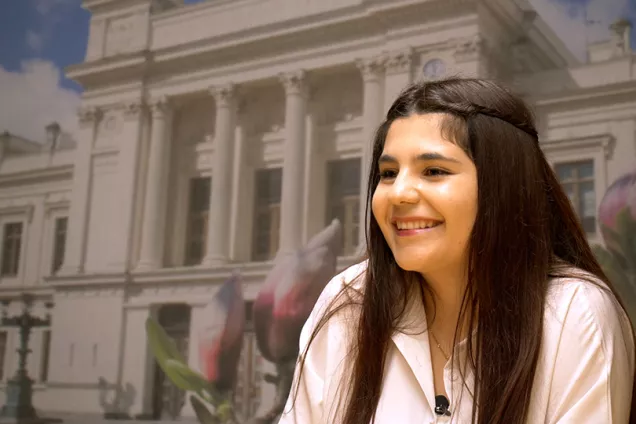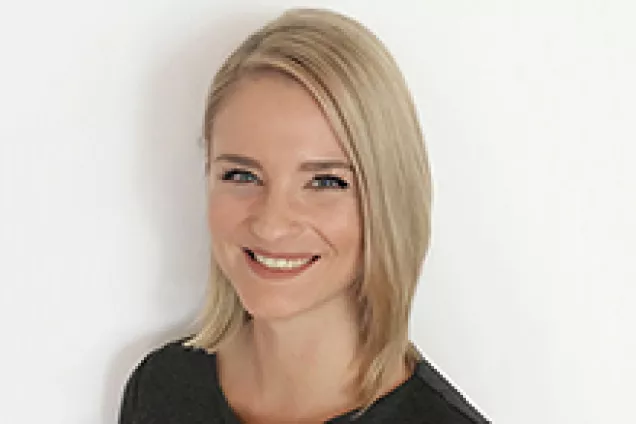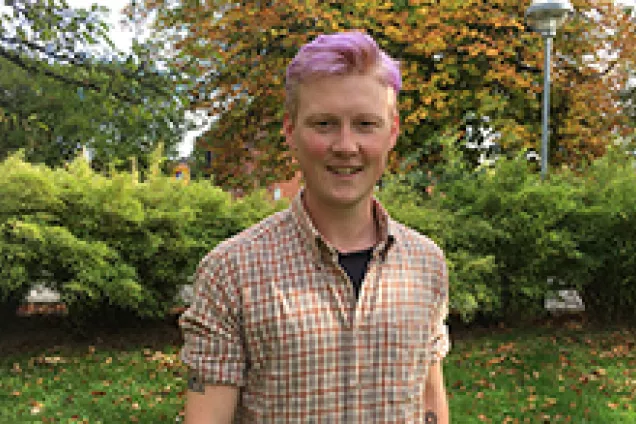Biomedicine - Master Programme
Master's programme · 2 years · 120 credits

Description
Students graduating from the programme have developed leading competencies in biomedical research and are well prepared for independent work in society, academia and the life science industry. The programme leads to a Master of Medical Science, with a major in Biomedicine, and specialisation in research within academia or the life science industry.
Most of the teaching takes place in research environments at the Biomedical Research Centre in Lund, with parts of the teaching located at Max lab IV/European Spallation Source (ESS). All teachers are active research scientists. The programme is tightly linked to cutting edge research and all teachers have relevant research experience.
Programme modules/courses
The first semester is devoted to advanced studies, including experimental design, scientific communication and state-of-the-art experimental laboratory work using methodologies that are highly relevant for biomedical research areas. Applied biostatistics and ethics are embedded in the semester’s courses.
During the second semester, you can individually adapt your studies depending on your areas of interest by selecting elective courses. The programme offers advanced courses in molecular neurobiology, tumour biology, metabolic disease and stem cell biology.
The second year is devoted to preparations for a future profession as a biomedical scientist within academia or the life science industry. Generic competencies in leadership, written scientific communication and oral presentation techniques. The programme ends with a 45 credit research project conducted in academia or life science industry in Sweden or abroad.
COMPULSORY COURSES: Experimental Design and Scientific Communication, Biomedical Methods and Experimental Animal Models, Innovation and entrepreneurship, and either the academic or industrial research track.
ELECTIVES: In total 30 ECTS are elective, and you may choose among a number of courses at the Faculty of Medicine as well as other faculties in Sweden or abroad to create your own specialisation.
Career prospects
Throughout the programme, you will acquire cutting-edge skills in biomedicine. You will be qualified to work independently and in teams, leading biomedical research and development, both in an academic context, in life science industry and the public sector. A completed Master’s programme can, if approved by a relevant authenticating body, be included as part of a PhD programme.
Incoming exchange students
Most of the biomedicine courses at the Bachelor's and Master's level are open for incoming exchange students. Read more about the courses on the Faculty of Medicine's web:
Open for applications
Application opportunitiesThis programme is open for applications from 15 October 2024 to 15 January 2025.
Contact
Study Advisor
Susanne Destow
Phone: +46 46 222 71 21
Email: susanne [dot] destow [at] med [dot] lu [dot] se
Requirements and selection
Entry requirements
- A Bachelor’s degree of 180 credits in biomedicine, bioengineering, cell and molecular biology or medicine, including an independent project (degree project) of at least 15 credits in biomedicine or science. Furthermore, the student’s previous studies must include at least 15 credits in biochemistry, at least 20 credits in basic cell biology (cell biology, molecular biology, microbiology, immunology, genetics and/or developmental biology), at least 5 credits in immunology, at least 5 credits in microbiology, at least 7.5 credits in human physiology and at least 30 credits in molecular medicine, pathobiology, pharmacology and/or toxicology, and
- English course 6 (advanced proficiency)
Selection criteria
English language requirements
Most of Lund University’s programmes require English Level 6 (unless otherwise stated under 'Entry requirements'). This is the equivalent of an overall IELTS score of 6.5 or a TOEFL score of 90. There are several ways to prove your English language proficiency – check which proof is accepted at the University Admissions in Sweden website. All students must prove they meet English language requirements by the deadline, in order to be considered for admission.
How to prove your English proficiency – universityadmissions.se
Country-specific requirements
Check if there are any country-specific eligibility rules for you to study Bachelor's or Master's studies in Sweden:
Country-specific requirements for Bachelor's studies – universityadmissions.se
Country-specific requirements for Master's studies – universityadmissions.se
Apply
Start Autumn Semester 2025
Day-time Lund, full time 100%
In English
Study period
1 September 2025 - 6 June 2027
Application
Last application date 2025-01-15
How to apply
Lund University uses a national application system run by University Admissions in Sweden. It is only possible to apply during the application periods.
Step 1: Apply online
- Check that you meet the entry requirements of the programme or course you are interested in (refer to the section above on this webpage).
- Start your application – go to the University Admissions in Sweden website where you create an account and select programmes/courses during the application period.
Visit the University Admissions in Sweden website - Rank your programme/course choices in order of preference and submit them before the application deadline.
Step 2: Submit documents
- Read about how to document your eligibility and how to submit your documents at the University Admissions in Sweden website. Follow any country-specific document rules for Master's studies or Bachelor's studies
Country-specific requirements for Bachelor's studies – universityadmissions.se
Country-specific requirements for Master's studies – universityadmissions.se
- Get all your documents ready:
- official transcripts and high school diploma (Bachelor's applicants)
- official transcripts and degree certificate or proof that you are in the final year of your Bachelor's (Master's applicants)
- passport/ID (all applicants) and
- proof of English proficiency (all applicants).
- Prepare programme-specific documents if stated in the next paragraph on this webpage.
- Upload or send all required documents to University Admissions before the document deadline.
- Pay the application fee (if applicable – refer to the section below on this webpage) before the document deadline.
* Note that the process is different if you are applying as an exchange student or as a part of a cooperation programme (such as Erasmus+).
* If you have studied your entire Bachelor's programme in Sweden and all of your academic credits are in Ladok, you do not have to submit transcripts or your diploma when applying for a Master's programme. However, there may still be other documents you need to submit! See the link below.
* Svensk student?
Läs instruktionerna om att söka till ett internationellt masterprogram på lu.se
Programme-specific documents
In addition to the documents mentioned under Step 2, you must also fill in and submit the programme-specific CV-form and required attachments using the template listed below.
CV form template – Biomedicine (PDF, 424 kB, new tab)
Tuition fees
Non-EU/EEA citizens
Full programme/course tuition fee: SEK 410 000
First payment: SEK 102 500
Citizens of a country outside of the European Union (EU), the European Economic Area (EEA) and Switzerland are required to pay tuition fees. You pay one instalment of the tuition fee in advance of each semester.
Tuition fees, payments and exemptions
EU/EEA citizens and Switzerland
There are no tuition fees for citizens of the European Union (EU), the European Economic Area (EEA) and Switzerland.
Application fee
If you are required to pay tuition fees, you are generally also required to pay an application fee of SEK 900 when you apply at the University Admissions in Sweden website. You pay one application fee regardless of how many programmes or courses you apply to.
- Paying your application fee – universityadmissions.se
- Exemptions from paying the application fee – universityadmissions.se
- Convert currency – xe.com
*Note that there are no tuition or application fees for exchange students or doctoral/PhD students, regardless of their nationality.
Scholarships & funding
Lund University Global Scholarship programme
The Lund University Global Scholarship programme is a merit-based and selective scholarship targeted at top academic students from countries outside the EU/EEA.
Lund University Global Scholarship
Within the framework of the Lund University Global Scholarship programme, the University also offers the African Research Universities Alliance (ARUA) Scholarship targeted at top academic students from selected African research universities.
Swedish Institute Scholarships
The Swedish Institute offers scholarships to international students applying for studies in Sweden at Master's level.
Scholarship information on the Swedish Institute website
Country-specific scholarships and funding options
Lund University has agreements with scholarship organisations and funding bodies in different countries, which may allow applicants to apply for funding or scholarships in their home countries for their studies at Lund University.
External scholarships
Testimonials about this Master's

Meet our student ambassador Filipa
Read her testimonial and chat with her via Unibuddy.

”Gives you a lot of freedom to choose your track”
Shilan from Sweden

"Every day of my biomedical education felt meaningful"
Victoria from Sweden

"I chose LU because of its strong reputation in the field"
Christian from England